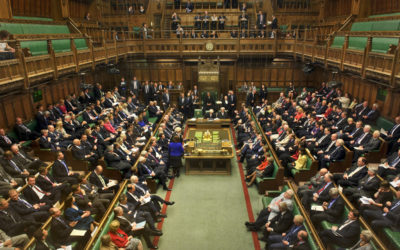Recruitment at any price
ForcesWatch comment
The Public Accounts Committee have today published their report Skill Shortages in the Armed Forces. The report is narrowly focused on how to solve the problem of the recruitment shortfall and it makes a number of problematic recommendations that put the military’s operational needs over other considerations.
There is an implicit suggestion in the report that the ‘recruitment crisis’ can be solved if only the MoD reached out far enough and strategise better. This does not recognise societal changes, particularly amongst young people, that make the armed forces, with all its attendant risks, obligations and ethical considerations, an unattractive career for many.
The report shows little in-depth consideration of the methods of recruitment and gives no space to the ethics of how young people are marketed to, and recruited into, what is a career with unique risks and moral implications. Very disappointingly, it suggests even more marketing and STEM activities in schools.
‘Innovative approaches to recruiting’ will undoubtedly mean that the armed forces will seek to use other education and youth organisations as a channel for building interest. Another recent report on the ‘recruitment crisis’ also suggested ‘innovative’ ways of interesting young people such as putting the armed forces onto the curriculum and actively encouraging cadets to enlist into a forces career.
Despite criticism of other traditional recruitment practices, the report does not examine the continued recruitment of 16 and 17 year olds and whether this is effective, even within narrow operational terms of improving retention.
The youngest recruits do not have the qualifications to fill most of the skills gaps identified. They also are more likely to drop out than older recruits, which is wasteful of MoD resources and leaves those young people having dropped out of education with no employment. These Early Service Leavers are particularly at risk from post-service difficulties. See here for details of these issues.
Many recruits point to the difference between their expectations – much of which are derived from advertising – and the realities of training and service. Yet more sophisticated marketing campaigns to attract young people does not seem to be a solution to improving retention rates if it just results in signing up more recruits who are not suitable to military life.
Whatever the operational demands on the armed forces, they should be planning to cease recruitment of under-18s in line with the international consensus that children – those under 18 – should not be involved in armed conflict. It is not enough to say that the UK does not deploy until the age of 18; placing 16-18 year olds within an environment with is primarily about the operational needs of the workplace, and subjecting them to intensive military training so that they are deployable as soon as their 18th birthday, does not adequately safeguard their rights and wellbeing.
The UN Committee on the Rights of the Child has repeatedly told the UK to stop recruiting under 18 year olds, and to ‘strictly limit’ the access of military recruiters to schools. It is unfortunate that the financial basis for this review precludes any consideration of what is in the best interests of young people, and gives no recognition of this important public debate.
The report raises another consideration in its questioning of the current recruitment model, noting that ‘it takes the Armed Forces many years to develop the experienced military personnel they need’. One aspect of this is that all serving personnel must also be trained to fight, whatever their professional role within the forces. While this approach moulds personnel into military people prepared to do whatever is asked, it also means that all personnel understand and experience what the modus operandi of the military is – using force.
Moving away from this approach raises ethical as well as operational questions, which are, again, not countenanced by this report. What would be the effect of lateral recruitment – from civilian professions – on how the armed forces are able to operate? Would civilian involvement become a restraint on military action or would closing the civil-military gap in this way further obscure ethical issues around the use of force? This question is also pertinent to the way that the military are extending their recruitment activities out into education, youth organisations and wider society. The only way this can be affective is if a sanitised version of military action is portrayed and this risks normalising it and reducing debate around it.
See more: legislation & policy, recruitment, recruitment age, UK Parliament
Like what you read?
> Sign up for our newsletter or blog notifications
> Support our work – from just £2 a month










